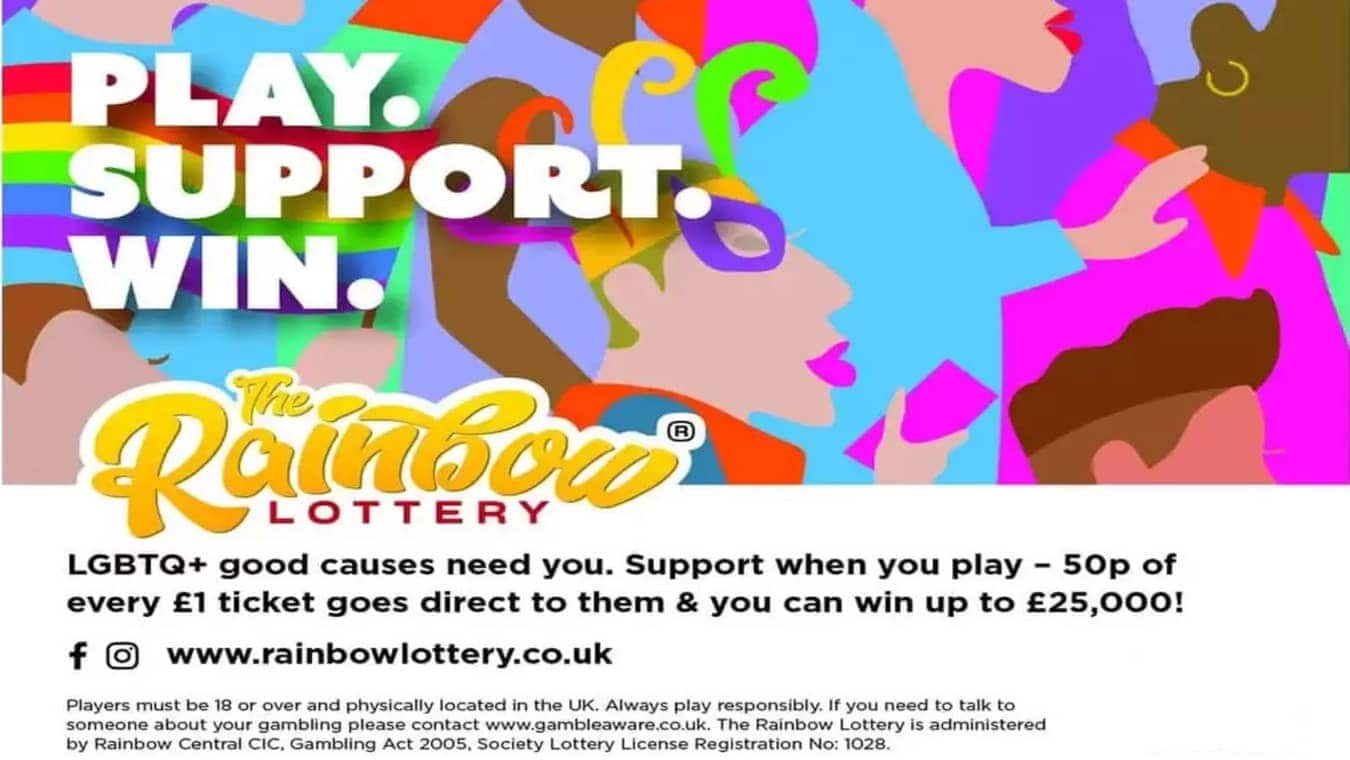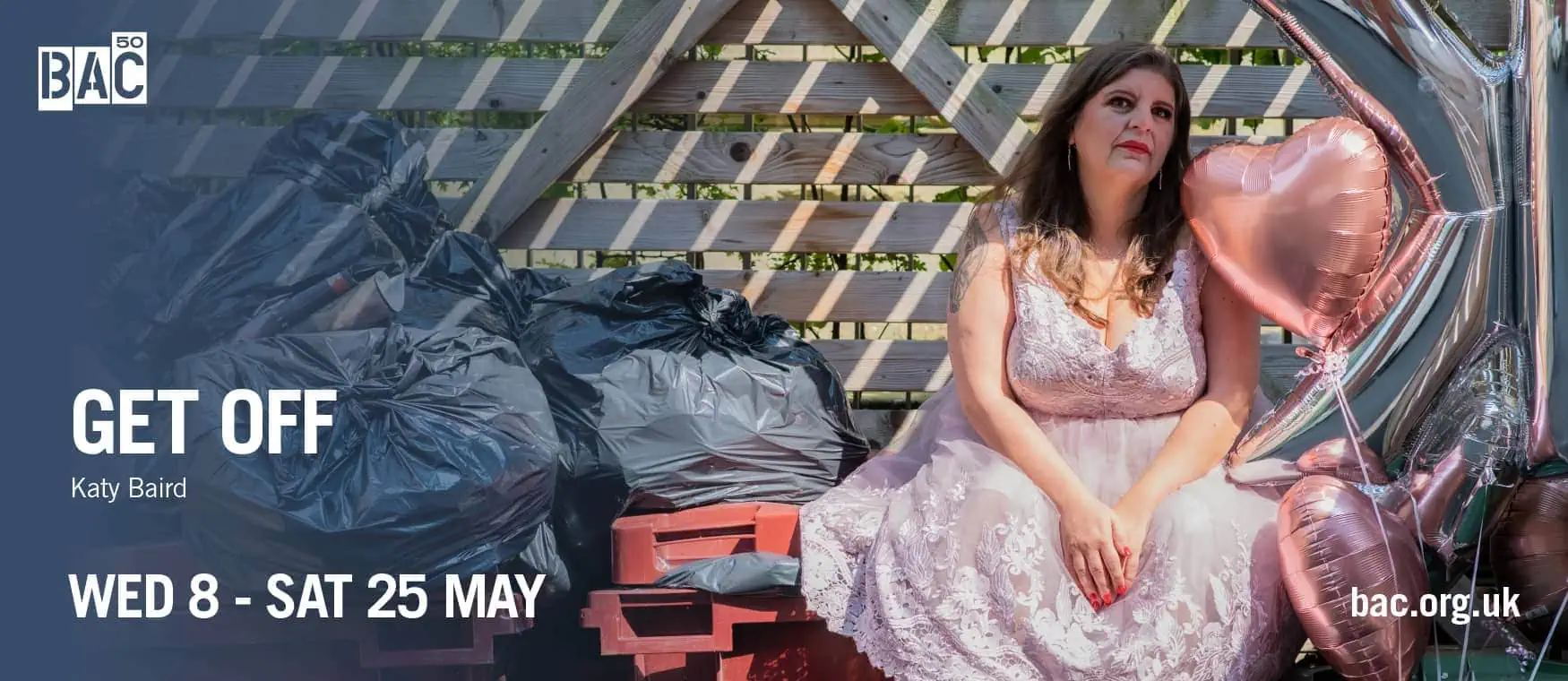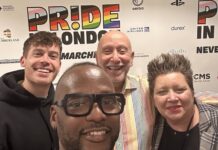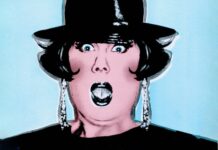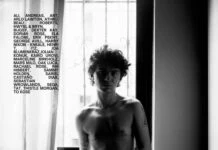Bisi Alimi is one of the civil rights heroes of modern times.
With a television interview that scandalized a nation, he brought gay visibility into the mainstream in a country where homosexuality is punishable by death.
Now he’s living in London, continuing his mission to change the face of LGBT rights in Nigeria. Dylan Jones met him on the South Bank and they talked racism on the scene, underwear and the price of his sudden fame.
So tell me some of your amazing story Bisi. You’re famous in Nigeria aren’t you? Why is that?
My fame in Nigeria is something I often call an accident, and in a way, a very good one. I studied Theatre Arts at university, because all I wanted in life was to be an actor. Growing up, I was involved in the school dramatics society. It was one of the few places in the world I felt safe, considering I was struggling with my sexuality in Nigeria.
So it was really a dream come true when I was given admission to study drama in one of Nigeria’s top universities. Then at the end of my studies, certain events happened that changed the course of my life. I became very political in school, and that came with campus media scrutiny. It was brutal. My life was x-rayed and everything put in the open. As this was going on, I struck gold by getting cast for a leading role in a television soap, with prime time allocation, so that event intensified the pressure but gave me the career I dreamt of as a little boy. I’ve had my Oscar speech written since I was like 20!
I came out as gay on the biggest television talk show in Nigeria with millions of viewers. I was just trying to save myself and save my soul. Many people have labeled my coming out as groundbreaking and I won’t deny that. I mean I was the first person to openly come out as gay on national television in Nigeria, but I keep telling people this title was never at the back of my mind. I attempted my first suicide when I was 17. This started one of the biggest crises in my life, and sitting on the sofa on that show 12 years later, I was just trying to rescue myself. But I’m happy with what happened. I gave so many young people in Nigeria hope for a better future.
When did you come to London? What do you think of it?
I first came to London in 2007, for the CHAP conference, for gay men with HIV. It was the first time I’d actually been with gay men from all walks of life. It was so amazing and I was like a kid in a candy store. I had never seen anything like it. I mean, things like that don’t happen where I come from, so it was empowering.
I went back after the conference, energised and really ready to do a lot for the gay men in Nigeria and raise awareness around HIV. I was causing trouble when I was here though! I did an interview with the BBC that really didn’t go down well with the Nigerian government. By that time, Nigeria had introduced the “Anti Same Sex Marriage Prohibition bill”; it was first introduced in 2006 as a reaction to my coming out, and an attempt to curb the spill over effect.
So going back home was hard. The backlash was out of this world. I was arrested, put in detention, harassed, assaulted. And my friends suffered as well. I need to make clear here that these things were already happening to me since my coming out, but it got really bad after I got back from the UK. Loads of Nigerians listened to the interview on BBC Africa.
On the evening of the 9th April 2007, my house was broken into and I was almost killed. My then boyfriend and I endured over two hours of real torture. At one point, I felt that was it. I sincerely thought I had no chance of surviving, but I did. There was an unintended intervention from my neighbour and that’s why I’m here to talk about this experience today. Without that, honestly I have no idea.
So, the next plan for me was to run out of the country. That was the only option I had then and I did. So moved to the UK finally on April 12th 2007.
I love London. It’s become home for me and it’s been an amazing home. I travel around the world and I’ll be honest, there’s no place in the world like London. Don’t get me wrong, I love the fast-paced, street smart life of Lagos. I miss that. I also love the peacefulness of Zurich and Lurcen where I spend most of my summer holidays. But I think in London, I have the pleasure of the mixture of both. You can get the full madness of Lagos and New York either in Peckham or Knightsbridge and Oxford Circus, and just around the corner from these active areas are lovely cool and peaceful places with green parks and great people with amazing smiles hanging around. You just can’t find that anywhere.
What are your experiences on the scene has a black man?
I’ve talked about my experience as a black gay man on the scene many times. I’ll be honest, and I won’t say it’s all what we have read. Is there racism on the scene? YES! There’s also sexism and transphobia. I think sometimes we forget that the gay community is made up of human beings with views, ideologies and principles like the heterosexuals. I do understand that the reason we expect so much for the community is because we have faced historic discrimination and stigma and we should know better.
My personal experience has been mixed really. I have experienced extreme racism on the scene. I remembered two events clearly and I think they played a role in my withdrawing from the gay scene. The first time, I was out in Manchester once with a friend, and he stopped to talk to his friends while I went on. Then I got to the door and the doorman wouldn’t let me in. He kept saying “do you know this is a gay bar?”, and I was like, yes I know, why do you think I’m on Canal Street at 1am? Then he told me it was membership only. I’d been to that place with my friends before and never heard anyone asking for membership card. Then, my white friend came and then, just like that, we were allowed in, no questions asked.
The second incident was when I was out at London Pride and a guy grabbed my crotch. I was so upset, I almost slapped him. Then I confronted him, I was fuming, then he said “oh suck it up, I was just doing you a favour, all black guys like it”. I just feel less of human. I know we deny the impact of sexual harassment on the gay scene. Most of it is centred around Black and minority ethnic group based on “othering” and an image of sexual expectation created by the media based on race.
You’re getting married in November! Tell us about your wedding and your fiancé.
Well it’s very exciting! I mean, I’m a boy from Nigeria, where I could be a 14 year jail sentence for even thinking of such an idea, so it’s really exciting. My wedding is going to be a fusion of Nigeria, Scotland and Australia. My fiancé is from Australia and we want represent the different parts of us that we cherish.
Who would be your dream wedding guests?
I’d be happy to have Jeremy Corbyn at my wedding really. Maybe he’s going to read this and make that dream come true. I love Ashley Jensen from Extras too….she’s super cool and looking at her just makes me laugh. So please can you get her as well? And I mean who wouldn’t want Michelle Obama at his wedding? But to come down to earth, I would have loved to have my family there but it’s a shame they wont be there.
Who in the world do you look up to the most?
Desmond Tutu… I love that man. Then Bayard Rustin. His life story has become the engine for my life. Knowing that as far back as the 1950s America, there was a black gay man. Not only that, he was one of the biggest brains behind the civil rights movement in the US and the planner of March on Washington for jobs, and has a great input into that evergreen phrase “I have A Dream”. I’m not sure why he’s not more known. It’s a shame that in the LGBT world his race has relegated him to the background and in the black world, his sexuality has turned him to an outcast. Then there is James Baldwin. If Rustin informed my activism and self-awareness as a black gay man, Baldwin helped to establish it. Then there is Audrey Lorde and Maya Angelou. Well you will see a reoccurring theme here, most of the people I look up are not here anymore, apart from Desmond Tutu. This just says a lot about the world we live in now.
What’s your most treasured possession?
I love to collect Andrew Christian underwear (face palm). I love it! I love the sexiness of the cuts. I have a serious obsession for the underwear and I have a collection of the naked edition. Very sexual and sensual…have I said too much now?
Not at all! It leads well into my next question…tell me something naughty you did recently.
A group of Chinese men once stopped in around Oxford Circus, and it was in the evening. I think it was a Saturday night and they said they really wanted to go to a club but they wanted a club where there are girls because they have been informed that clubs in London are a bit dodgy. So I told them to try Hard On.
Tell me something nice you did recently.
Last year with the support of friends, I started The Bisi Alimi Foundation. This was my own small way of contributing to changing the homophobic landscape in Nigeria. The foundation is a think tank and it will be contributing to the research landscape in Nigeria. We are working really hard to use research, policy and advocacy to change hearts and minds in Nigeria. We have been working really hard and we’ve had a lot of support. If your readers want to know more, they can visit, www.bisialimifoundation.org. Like I said, Lagos is an amazing place and I really wish it can also be a place where people can visit without fear.
What advice would you give to young LGBT people living in Nigeria right now?
Nigeria as a country is going through a very difficult time at the moment, and it’s a pity that the group that has been singled out to bear the burden of this is the LGBT group with the introduction of the Anti Same Sex Prohibition Act 2013, that was signed in 2013. This law means LGBT people could go to jail for 14 years in Nigeria. I just want Nigeria LGBT community to know its going to get better. Change always happens and it will happen in Nigeria, but it will happen with hard work and unity, nothing comes good from division and by giving up.
What are your plans for the future?
I want to work more on the Bisi Alimi Foundation so I can one day take my husband and my family to Nigeria to visit where I come from. Mostly importantly though, I’m just going to stay fabulous.
• Photos by Joel Ryder



